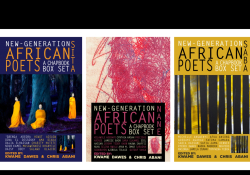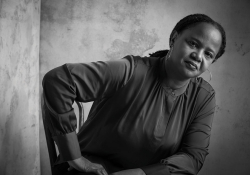The Special Case of Jamaican Patois
 Editorial note: This sidebar appears with Erik Gleibermann’s essay “Inside the Bilingual Writer” in the same issue
Editorial note: This sidebar appears with Erik Gleibermann’s essay “Inside the Bilingual Writer” in the same issue
M
arlon James’s use of Jamaican Patois in his 2015 Booker Prize–winning novel A Brief History of Seven Killings extends the concept of literary bilingualism. Patois, the first language of most Jamaicans, is based in English but, like other Caribbean creoles, is classifiable as a separate tongue with distinct grammar and vocabulary. On the page, it’s only semi-decipherable for a non-Jamaican English speaker.
The novel features over a dozen narrators, weaving a cross-decade account built around a plot to assassinate a fictionalized Bob Marley. Some of the most compelling voices are the gang lords and petty thugs bound to the Kingston streets who speak a stylized, slang-laced Patois that James paraphrases into English while retaining Patois grammar and rhythm.
Using his stream-of-consciousness style, James can make even sexual violence or a backroom freebase overdose sound lyrical. In one scene, gang member Demus describes attempting to defend himself against a police officer who assaults him as he bathes.
“Officer you no see that is bathe me a bathe and he come right over and kiss me mouth hard with the rifle butt. Don’t come tell me no fuckery, nasty man, he say. A play with yourself and love up yourself like some bloodcloth sodomite.”
This is largely English, but “A play,” for example, uses the Patois connector word “a” that precedes verbs, while “bloodcloth,” properly pronounced bloodclaat, is slang for sanitary towel and as common in Patois as the word fuck is in English. James enriches the hybrid style with striking figurative expressions, such as this excerpt’s ironic rifle-butt kiss.
For the first time since Harlem Renaissance poet Claude McKay published the Patois collection Songs of Jamaica in 1912, James leads readers into the sensory tones of the island’s dusty alleyways and simmering kitchens.
With, as language consultant, Harvard University doctoral student Patois instructor Khytie Brown




















